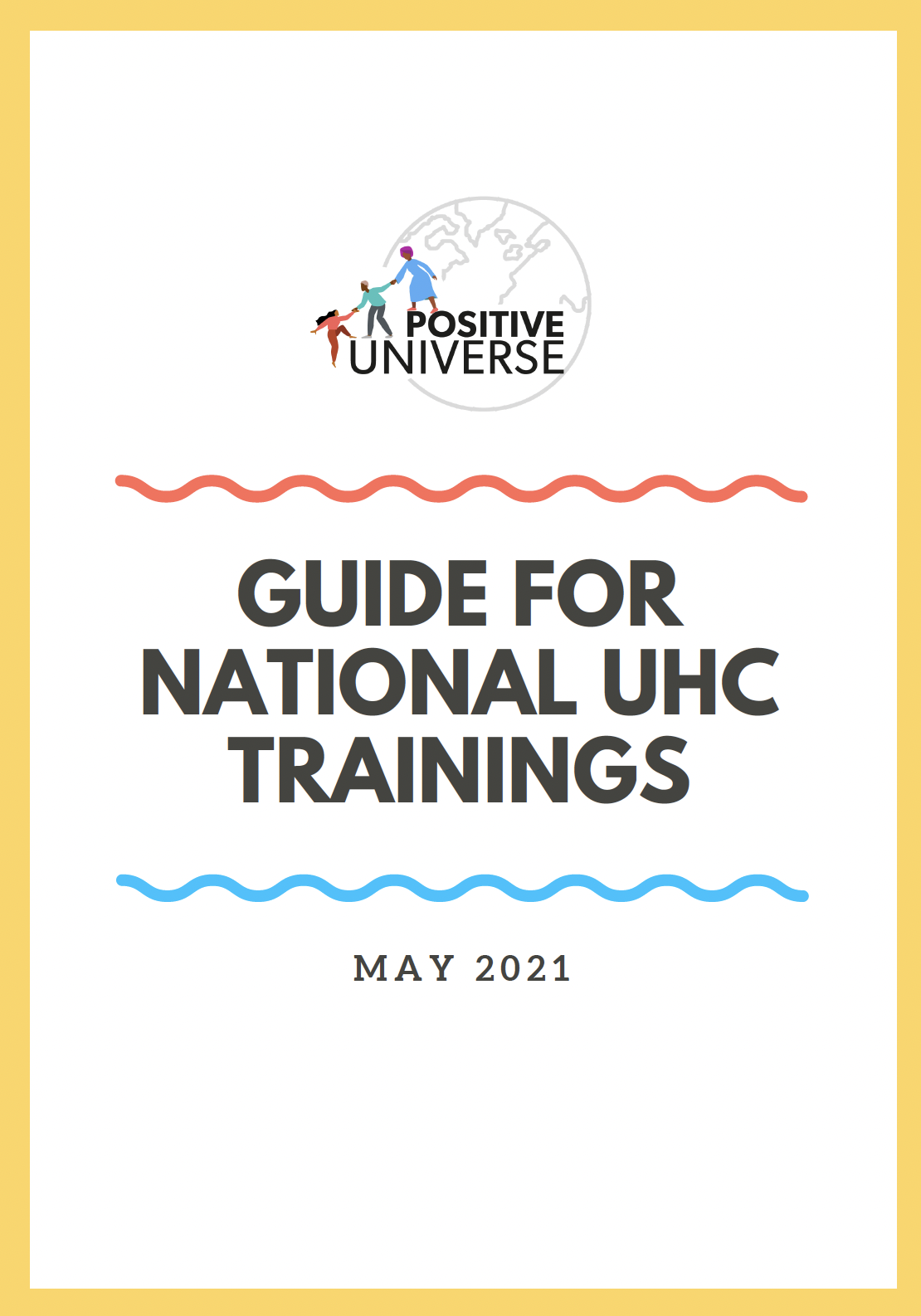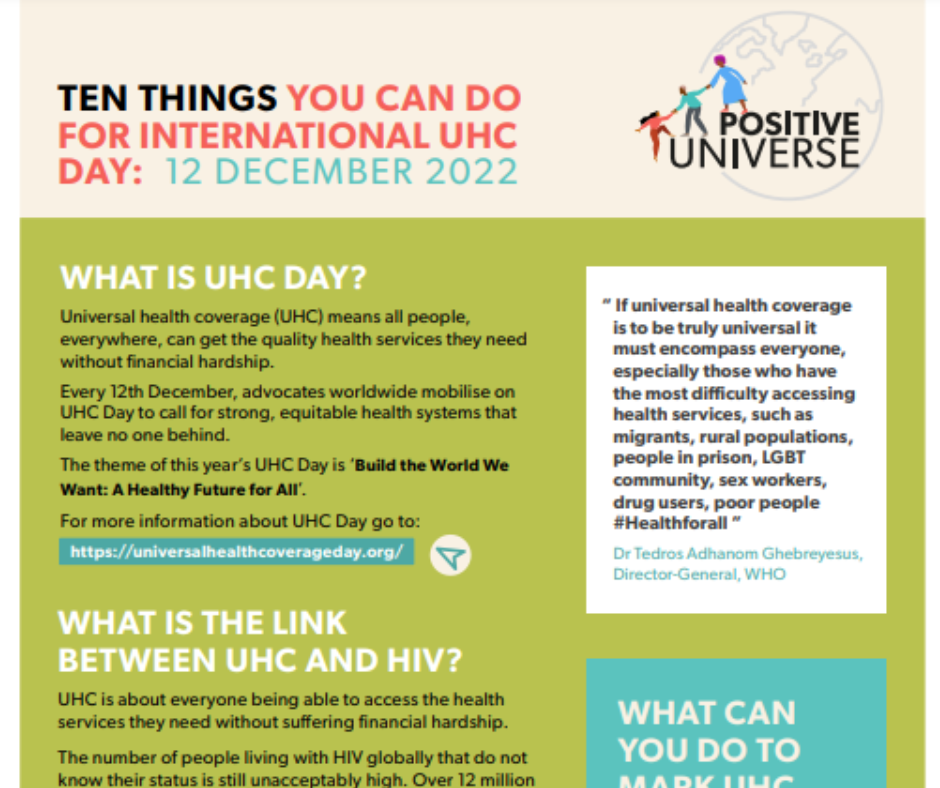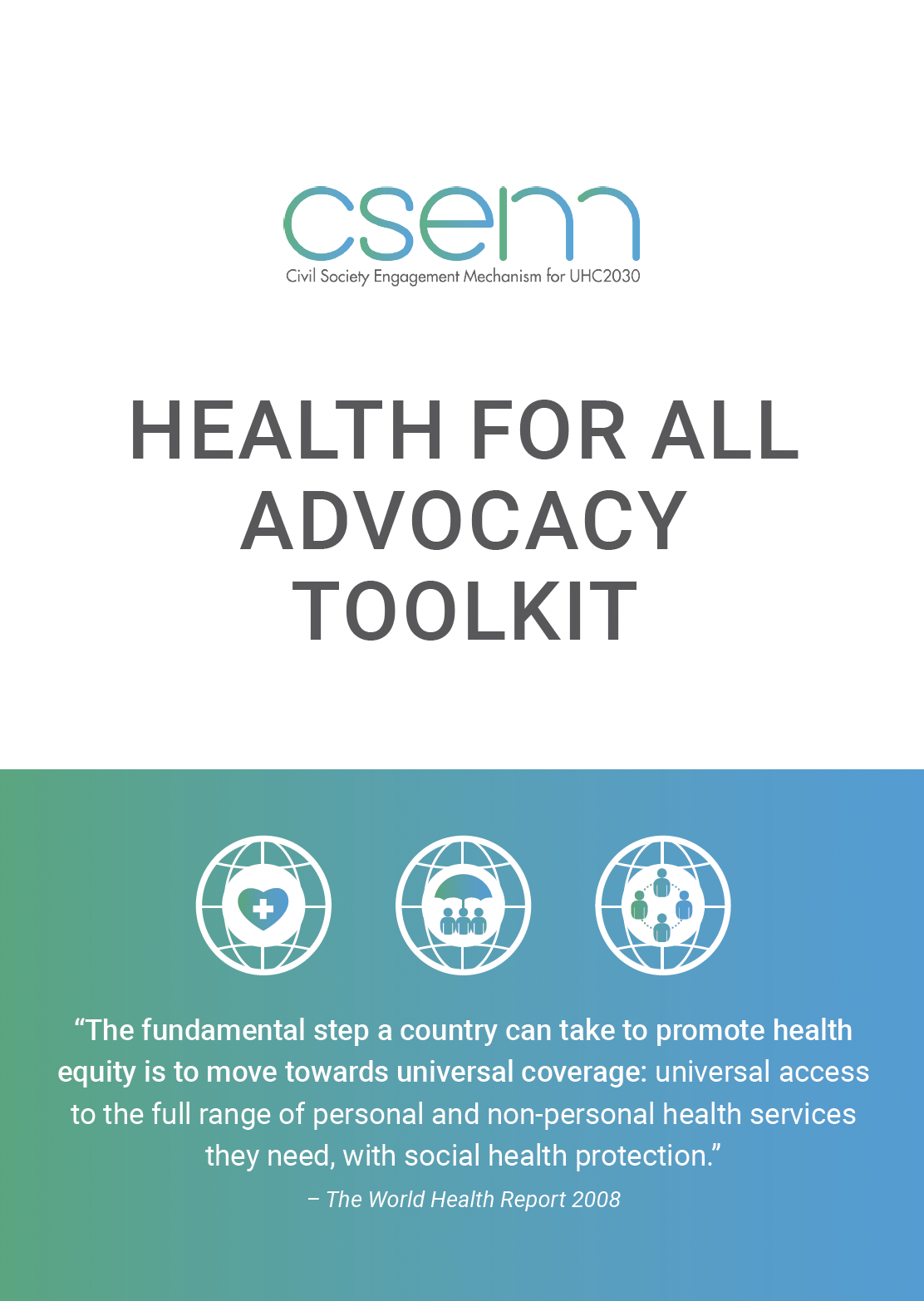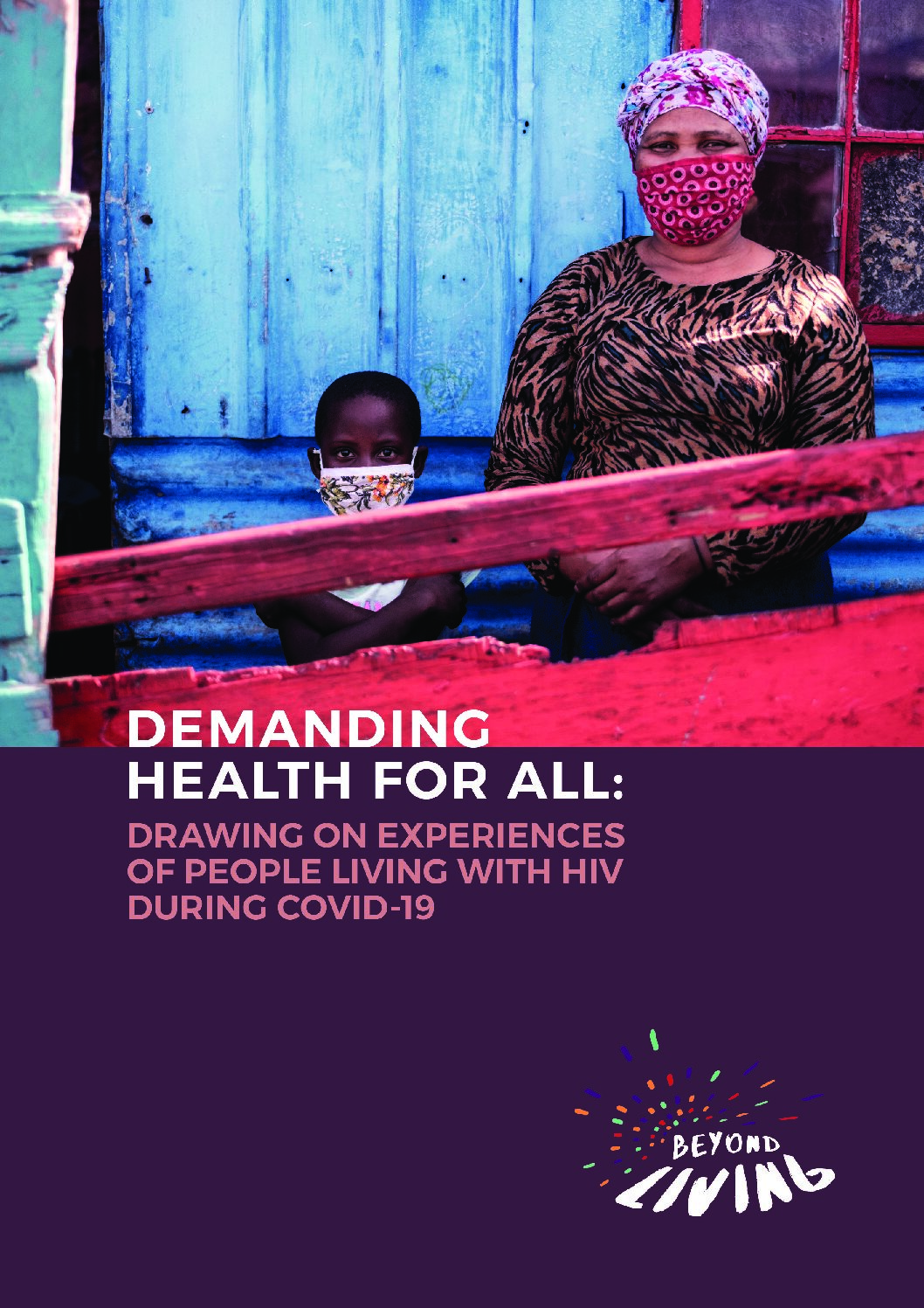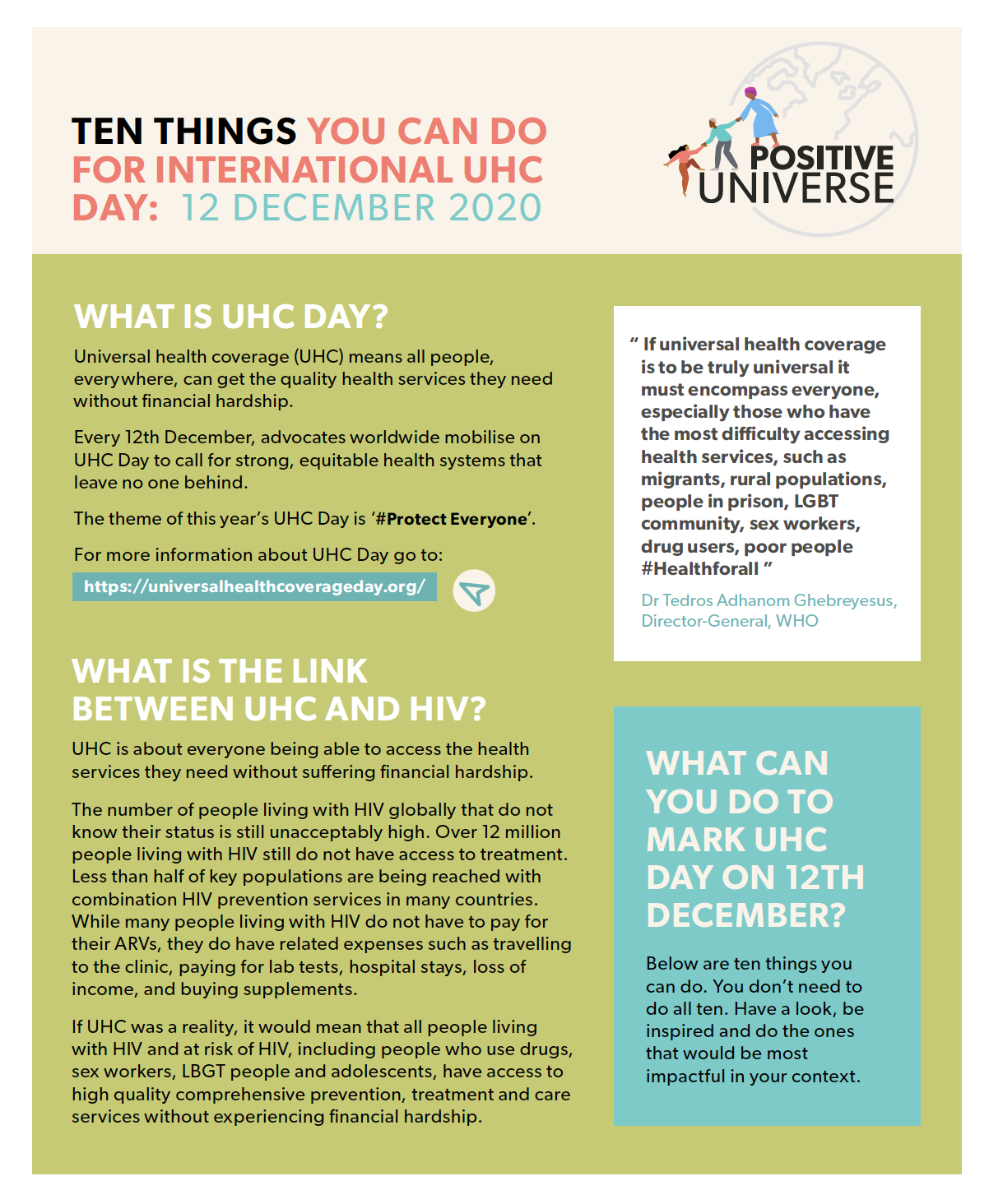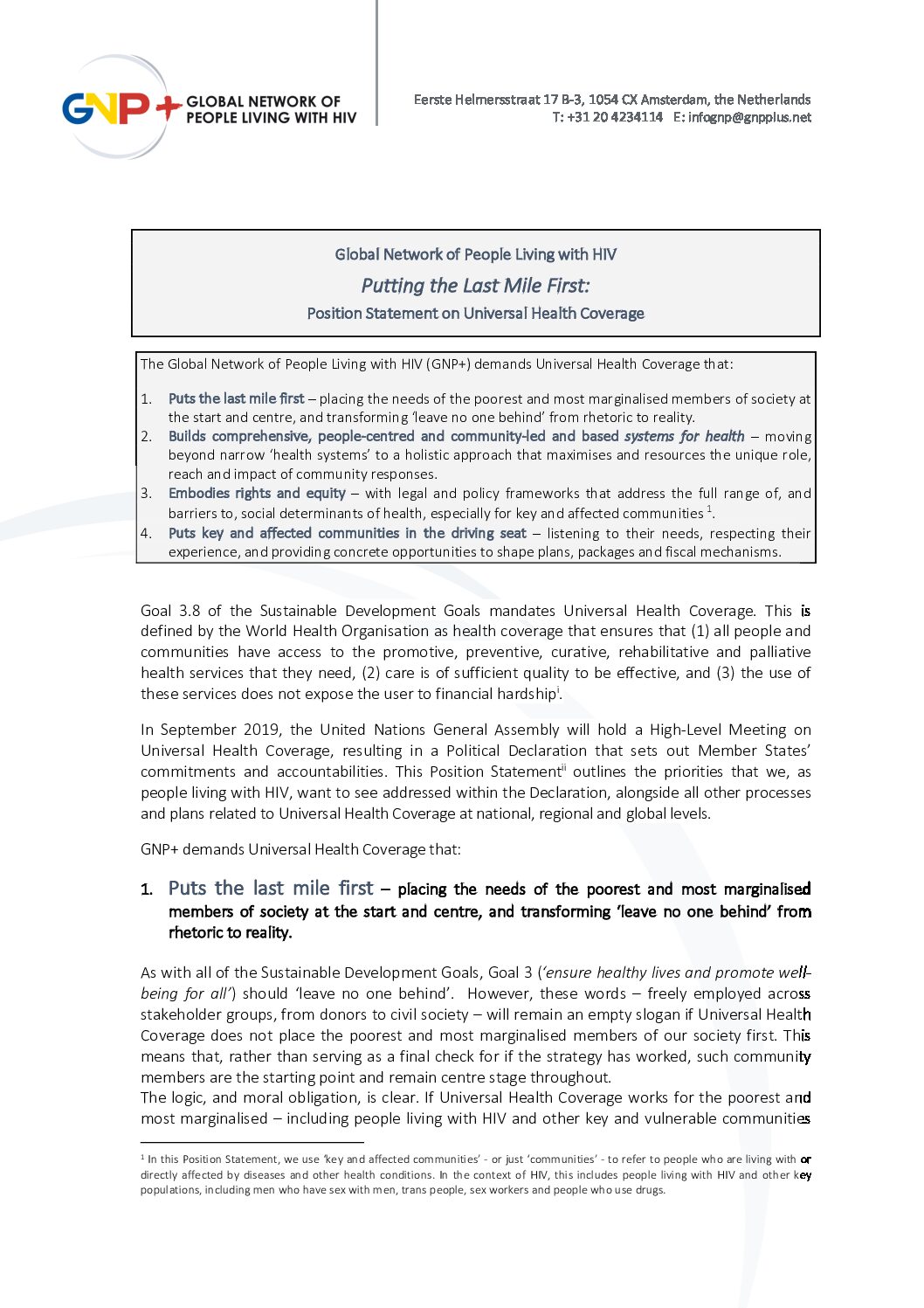About the Toolkit
The Health for All Advocacy Toolkit provides national-level civil society organizations (CSOs) and health networks with the necessary resources to kick-start advocacy initiatives on universal health coverage (UHC). It offers advocates a central reference point—a ‘one-stop shop’ for key information and tools to advocate UHC, hold policy-makers accountable for their commitments, and build a broad social movement within civil society to support health for all.
The Toolkit is designed to be used by civil society advocates who are interested in learning more about what universal health coverage means; what commitments have been made to UHC at the global, regional, and country levels; and how they can incorporate UHC principles into their advocacy. The resources may also be useful for CSOs advocating on specific health issues or on Sustainable Development Goals (SDGs) beyond health, as the Toolkit provides information on how connecting to UHC advocacy can strengthen those efforts.
This Toolkit responds to the specific needs of civil society. In the lead up to the United Nations High-Level Meeting (HLM) on UHC in 2019, civil society and community representatives in countries around the world, convened by the Civil Society Engagement Mechanism for UHC2030 (CSEM), asked for more knowledge and information about UHC as well as about global level advocacy initiatives and platforms. The CSEM surveyed its members and other global health civil society networks to understand the specific kinds of information and resources that would be most useful in supporting their work on UHC. The survey received over 100 responses from 40 countries. Over 75% of respondents asked for practical tools and guidance for UHC advocacy.
The Health for All Toolkit was developed to respond to these needs and to provide one-stop access to existing resources and toolkits for UHC. The Toolkit was developed by the CSEM, with support from UHC2030, Equal International, and a reference group.
The Toolkit has three sections:
- Part 1: Introduction to Universal Health Coverage—provides an introduction to UHC, what it is, why health for all is vital, and how it can contribute to health as well as other SDGs. This section is particularly informative for those new to UHC as it outlines the key concepts and actors, and gives a timeline and milestones to date. It describes the key players at global and regional levels to enable advocates to ground their advocacy work in the broader UHC ecosystem. It is designed to equip users with technical knowledge around the essential UHC building blocks necessary for advocating UHC with various stakeholders.
- Part 2: Why civil society needs to engage in Universal Health Coverage—explores the critical role of civil society and communities in all stages of UHC design and implementation, and conveys civil society’s key advocacy calls to action. It includes case studies and vignettes that demonstrate the impact civil society has had and continues to have in decision-making for UHC, especially in ensuring health equity and holding leaders accountable.
- Part 3: How to participate—provides step-by-step guidance on advocating for UHC at the national level. This section walks the user through essential processes for creating an advocacy action plan, including defining the key challenges and bottlenecks and establishing where their country is on the road to UHC. This will help frame the activities and goals of the specific advocacy plan. The toolkit explains the process of mapping both advocacy targets and the stakeholders to collaborate with. Users will also learn how to develop key advocacy messages and incorporate them into ongoing advocacy work. This section provides practical tools and will help CSOs determine their budgets and measure their progress.
Acknowledgments
Rebekah Webb wrote this toolkit with contributions from Aishling Thurow, Amy Boldosser-Boesch, Carthi Mannikarottu, Eliana Monteforte, Oanh Khuất Thị Hải, and Masaki Inaba.
A special thanks to the UHC2030 Core Team at WHO and Equal International for their contributions to the development of this toolkit. We are grateful to the reference group for lending their expertise in support of this Toolkit: Evalin Karijo, Dumiso Gatsha, Georgina Caswell, Javier Hourcade Bellocq, Katie Husselby, Kirsten Zindel, Kurt Frieder, and Marielle Hart. We thank Results International and White Ribbon Alliance Kenya for sharing examples and learnings from successful advocacy campaigns.
Design: Kim Martin
Editorial review: Jane Coombes




